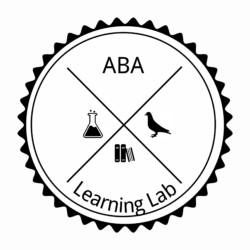By James Macon, M.Ed., BCBA
Every 3 months a new wave of hopeful Behavior Analysts make preparations to take the BCBA exam. If you fall within that category, or know someone who is is, this article is for you! Here are some helpful strategies to know going into the test.
First off, you should know that no one takes the exact same test. The BACB uses a large pool of questions which are used to generate different forms for each exam. Multiple forms exist during each testing window as well, and test takers are randomly assigned to these different forms. You might be thinking that that sounds a bit unfair… what if you get the tougher test? Rest assured. The BACB uses statistical analysis to even the playing field, and each test may actually have a different passing score.
Second, each test usually includes up to 10 “pilot” questions. These are not graded, and you won’t know which ones are the experimental ones. So while the normal test is 150 questions, you’ll actually be answering 160 total. Based on responses, the BACB may include them in future tests.
Lastly, the test itself is difficult. Between 2013 and 2016, the pass rate ranged between 58% and 66%. The February 2017 exam saw 67% of first time test takers pass the test. Those who were retaking the exam passed at a rate of 33.8%. Statistically speaking, the test gets tougher if you don’t pass it your first time. This is not meant to scare you, but rather set the proper expectations for good study behavior.
Start Early and Study Often
Plan on giving yourself 4-6 months to study. This should become part of your daily habit, just like brushing your teeth. This is not the test you want to try and cram for. Start a self-management intervention for studying behavior, and track your performance over time. Optimally, you will have a study partner who can help keep you on track. If preparing alone or a study partner isn’t working for you, try a Performance Manager, who can help rearrange some contingencies for you.
A little on Performance Management (PM) contingencies… they work best when engineered as an avoidance of a loss of a reinforcer. If the loss is too small, it’s probably not aversive enough. If the loss is too large, deception behavior becomes more likely, and we end up shaping sneaky behavior instead. Below is an example of a PM contingency for studying behavior.
Performance Management Contingency
Deadline: Sunday by 10:00 PM
| Before | Behavior | After |
| Will lose $20 | Study behavior, by deadline | Won’t lose $20 |
What to study
If you ask BCBAs what they used to study, they will tell you a variety of methods and programs. Some swear by the Behavior Development Solutions “BDS Modules,” which do an excellent job of approximating what the actual test questions will look like (including all those troublesome trick questions). A lot of my colleagues have been using “Pass the Big BCBA Exam,” and speak equally high praises for their program. Some choose to do both. I don’t think it’s necessary to try and use both study prep programs, but whatever you do use, make sure you fully commit to it.
Talking the Talk.
Along with giving yourself 4-6 months, having a self-management or performance management system in place, and using an exam prep course, you should plan on speaking only behaviorally to your colleagues. This might sound like a no-brainer, or it might sound intimidating, depending on the school or program you went to (and your colleagues).
Not all programs have the same rigor or emphasis on the science of behavior, which while unfortunate, is no excuse for not preparing thoroughly. Get in the habit of analyzing everything through the lens of radical behaviorism. Especially those things that fall outside of your normal work (presumably clients diagnosed with ASD). Using flashcards to memorize definitions and concepts is another way to promote better behavioral speak with your colleagues, and has the added benefit of increasing your foundational knowledge.
How are you studying for the test? Comment below!


Great assessment!